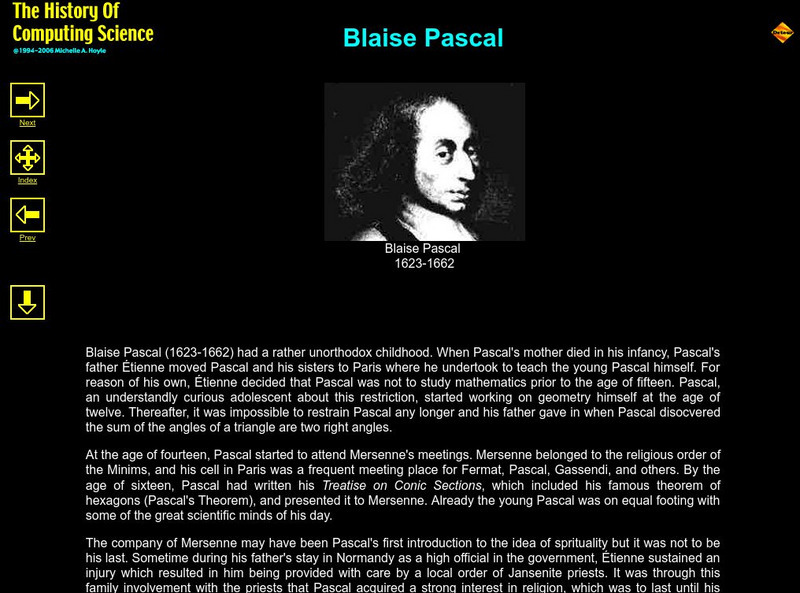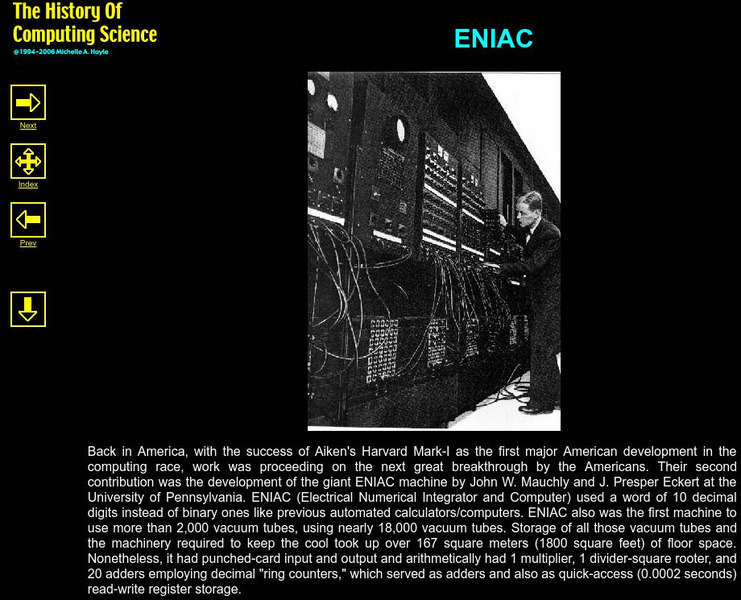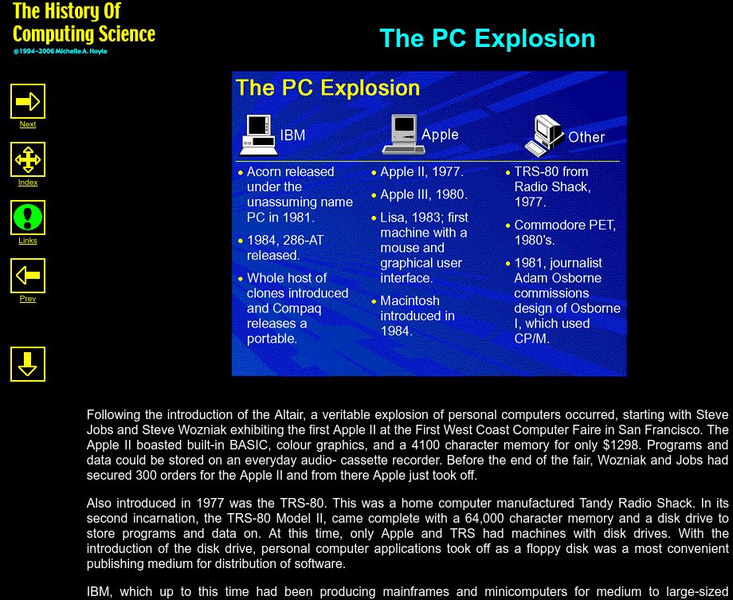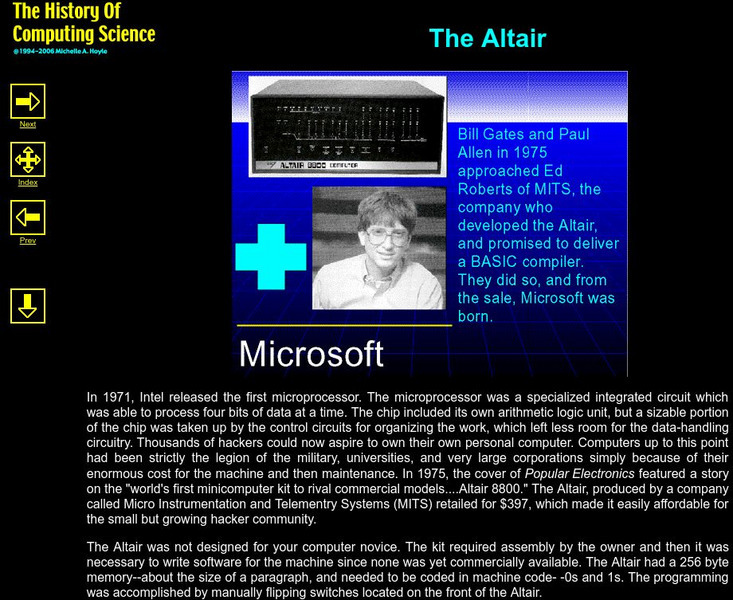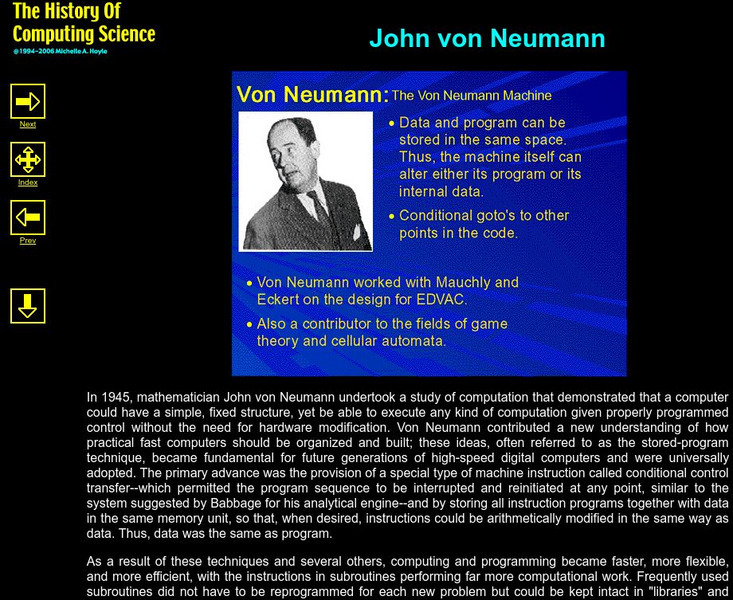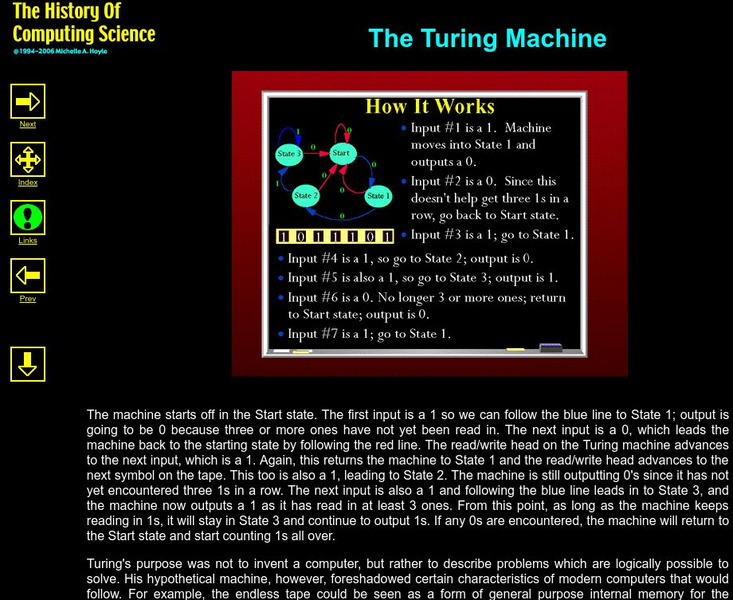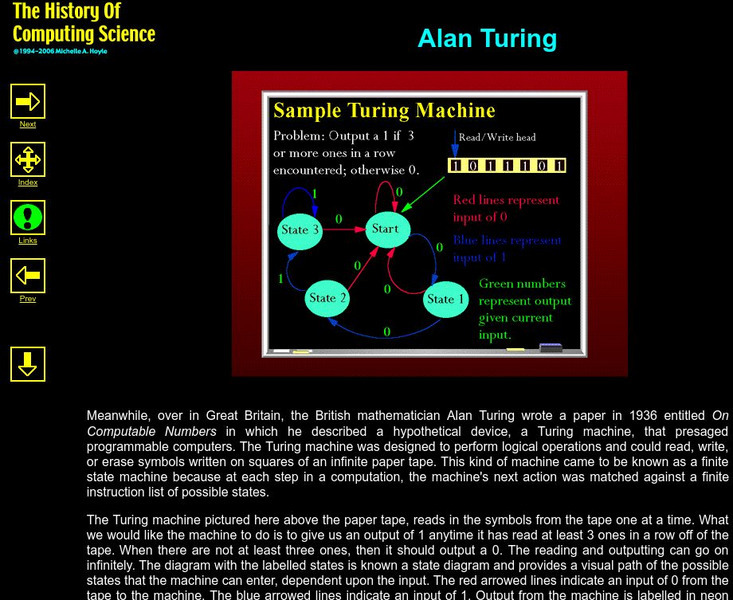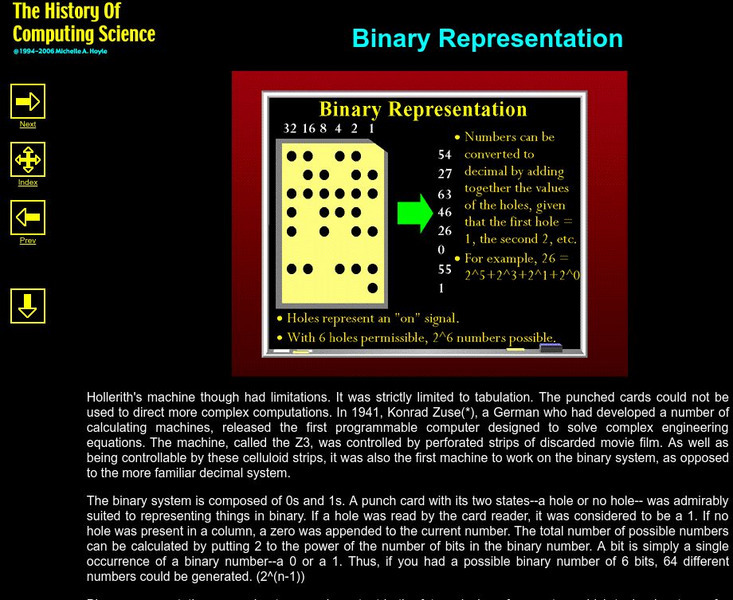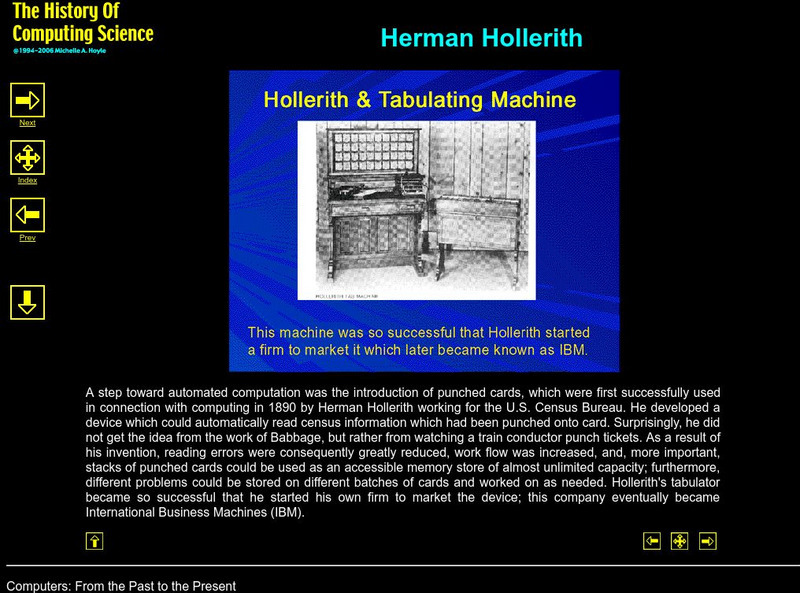History of Computing Science
History of Computing Science: Past Computer History
An in-depth lecture and PowerPoint slideshow on the history of computing can be found here. It gives an overview of the advances in science that made desktop computers possible, starting with the invention of counting, to the...
History of Computing Science
History of Computing Science: First Mechanical Calculator
Blaise Pascal, the seventeenth-century French mathematician, thinker, and scientist, built the first mechanical adding machine in 1642 based on a design described by Hero of Alexandria (2 CE) to add up the distance a carriage traveled.
History of Computing Science
History of Computing Science: Charles Babbage
This is a brief biography of Charles Babbage, also known as the "Father of Computing".
History of Computing Science
History of Computing Science: Blaise Pascal
Blaise Pascal was a French mathematician, physicist, and religious philosopher. He built the first mechanical calculator. This lecture presents a short treatment of his life and his accomplishments.
History of Computing Science
History of Computing Science: Harvard Mark I
The Harvard Mark I computer was the first large-scale automatic digital computer in the USA. This lecture provides a brief description of the Harvard Mark I computer.
History of Computing Science
History of Computing Science: Technology Advances
The transistor and the integrated circuit were two inventions that fueled the technology explosion. This lecture presents a brief discussion of these two inventions.
History of Computing Science
History of Computing Science: Edvac
EDVAC (Electronic Discrete Variable Automatic Computer) was an early computer that was one of the first to use the binary number system to represent information. This lecture is a brief presentation of the EDVAC.
History of Computing Science
History of Computing Science: Eniac
The ENIAC (Electrical Numerical Integrator and Computer)was a large computer based on vacuum tubes and introduced in 1946. This lecture gives a brief presentation of the ENIAC.
History of Computing Science
History of Computing Science: The Web
This History of Computing lecture series presents a simple and clear description of the World Wide Web.
History of Computing Science
History of Computing Science: P Cs Today
The personal computer (PC) has become a common fixture in virtually every home, business and classroom. This lecture series describes the history of the personal computer.
History of Computing Science
History of Computing Science: Basic & Other Languages
There are many computer programming languages in use today. This lecture series presents a brief description of the progression of programming languages.
History of Computing Science
History of Computing Science: The Altair
The Altair 8800 was the first personal computer. This lecture series gives a brief description of the Altair 8800 and the impact it had on the computer industry.
History of Computing Science
History of Computing Science: John Von Neumann
John von Neumann was a brilliant mathematician. His work impacted several fields of study. This lecture series provides a brief description of his life and contribution to computer science.
History of Computing Science
History of Computing Science: The Turing Machine
A Turing Machine is not an actual machine, but rather a symbolic system that can be used to represent any algorithm used to solve a problem. This lecture series gives a very brief description of the Turing Machine.
History of Computing Science
History of Computing Science: Alan Turing
Alan Turing is sometimes referred to as the father of modern computer science. This lecture series provides a brief description of his well-known contribution, the Turing Machine.
History of Computing Science
History of Computing Science: Binary Representation
The binary number system is a perfect fit for the dual-state technologies used in digital computing devices. This lecture series presents a brief description of how the two fit together.
History of Computing Science
History of Computing Science: A Primitive Calculator
The abacus is an ancient calculating tool. This lecture series presents a brief description of the abacus and its use.
History of Computing Science
History of Computing Science: The First Mechanical Calculator
The Pascaline was the first mechanical adding machine and was developed by Blaise Pascal. This lecture series presents a brief description of the history of the machine and how it worked.
History of Computing Science
History of Computing Science: The Difference Engine
The difference engine was never built, but its design was an important step in the history of computing devices. This lecture series presents a brief description of this early mechanical computing device.
History of Computing Science
History of Computing Science: Herman Hollerith
Herman Hollerith holds a prominent place on the timeline of computer history. This lecture series presents a brief description of Hollerith's tabulating machine and the impact it eventually had on the computing world.





